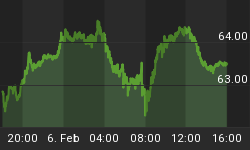The United States Preventive Services Task Force recently recommended mandatory depression screening for all Americans. The task force wants to force health insurance companies to pay for the screening. Basic economics, as well as the Obamacare disaster, should have shown this task force that government health insurance mandates harm Americans.
Government health insurance mandates raise the price of health insurance. Consumers will respond to this increase by either choosing to not carry health insurance or by reducing their consumption of other goods and services. Imposing new health insurance mandates will thus make consumers, many of whom are already suffering from Obamacare's costly mandates, worse off by forcing them to deviate from their preferred consumption patterns.
Mandatory depression screening will not just raise insurance costs. In order to ensure that the screening mandate is being properly implemented, the government will need to create a database containing the results of the screenings. Those anti-gun politicians who want to forbid anyone labeled "mentally ill" from owning a firearm will no doubt want to use this database as a tool to deprive individuals of their Second Amendment rights.
If the preventive task force has its way, Americans could lose their Second Amendment, and possibly other, rights simply because they happened to undergo their mandatory depression screening when they were coping with a loved one's passing or a divorce, or simply having a bad day. As anyone who has been mistakenly placed on the terrorist watch list can attest, it is very difficult to get off a government database even when the government clearly is in error. Thus, anyone mistakenly labeled as depressed will have to spend a great deal of time and money in what may be a futile attempt to get his rights back.
Mandatory depression screening will endanger people's health by increasing the use of psychotropic drugs. These drugs often have dangerous side effects. Their use has even been linked to suicide. The fact that almost every mass shooter was on psychotropic drugs is another good reason to oppose any policy that will increase reliance on these medicines.
The Preventive Services Task Force's mandatory depression screening mandate is based on the fallacy that diagnosing mental health problems is analogous to diagnosing cancer or diabetes. Even mental health professionals acknowledge that there is a great deal of subjectivity in mental health diagnosis.
Consider that until 1973 homosexuality was considered a mental disorder by the American Psychiatric Association. Today, some mental health professionals think that those who believe in limited government, free-market economics, or traditional values suffer from mental disorders. If mandatory depression screening becomes a reality, it is likely this mental health screening will be expanded to cover screening for other mental illnesses. This could result in anyone with an unpopular political belief or lifestyle choice being labeled as "mentally ill."
Even if mandatory health screening could be implementing without increasing costs or threatening liberty it would still be a bad idea. Government health care mandates undermine the basic principles of a free society. If it is legitimate for government to tell us what types of health care we must receive, then it is also legitimate for the government to tell us what to eat, when to exercise, and even how to raise our children. To paraphrase C.S. Lewis, a tyranny imposed for our own good is the worst form of tyranny because it is a tyranny without limits. All who love liberty must therefore oppose mandatory depression screening, or any other health care mandate.















